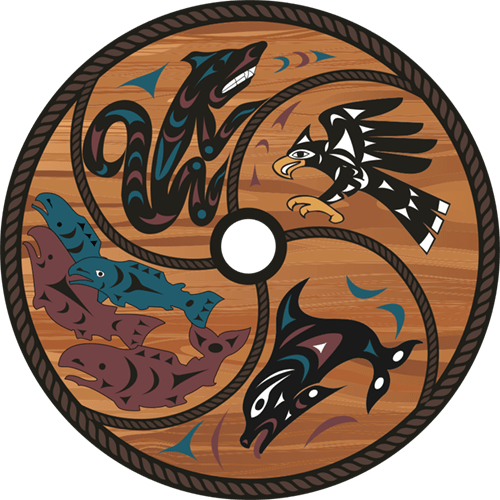What are your thoughts on the Douglas Treaty? Let us know through this survey by clicking the button below:
Transcript
My name is Verta Elsworth. I am from the W̱JOȽEȽP as Tsartlip, but our First Nations phrase is W̱JOȽEȽP, land of the maples, born and raised here. My traditional name is WILṈEW̱ SNÁ and who am I? I’m a wife of almost 40 years. I have six children and seven grandchildren.
What does to hunt and fish as formerly mean to you?
When the treaty was signed in 1850, it certainly changed because our land was what they call free and formerly, but now it’s been condensed to, it’s just getting closer and closer, smaller and smaller on a scale and that it’s still unceded because we have never given up our right to our lands but that’s the work of the here and the now. And it’s been today, but it’s been in the works since the Douglas Treaty was signed. Even though it’s 14 bands up, as far as Port Hardy, I think that may be still the same and I’m not really up to date as to who’s actually done a new treaty signing. So it means a lot as our livelihood is as we speak still at, a one to 10 being the worst, we’re probably at seven, and I want to be able to somehow open that gate wider than where we are today. Because, to me, it’s like that’s just kind of getting narrower and narrower to a smaller and smaller piece.
We do not need a license to hunt fish but how are you going to get a gun? Talking about hunting, you cannot buy a gun and you cannot buy bullets without that license. So, it’s a catch-22. My husband’s always had to, probably 10 years ago, buy the license to be able to do that. I don’t need the license because I have rights but without that piece of paper, that gives me the tool to get the gun to be able to go and gather food.
Do you think that the Douglas Treaty should have economic rights in a modern context?
I have my rights, but I have to compromise because it’s a piece of paper I need. That’s how I see it today. Part of this truth and reconciliation where we’re at today is that we need to implement the rights of all W̱SÁNEĆ people. I remember the W̱SÁNEĆ Marina and how we all went over there and fought for them. And even though we won because they went in with the machinery and they dredged, that water, the inlet has never been the same. When we go gather our crab there, it’s just full of sand.
It’s really difficult when we talk about, how I see it today, the rights, I’m conflicted. I love inclusion because as a leader I think that inclusion is just like, be kind, but when it comes to Goldstream, that is actually just Tsartlip’s. And then I’m not sure when, in the early seventies, I suppose, is when the Goldstream was a decision that was made of all of W̱SÁNEĆ. And I’m not even sure who the chief of the day was and the councilors of the day, but they had made Goldstream all of W̱SÁNEĆ bands. But the actual history to that was just Tsartlip. So there’s a change of what I see the treaty doing now. I really believe, and going back to the agreement of who we are, that overrides any new treaty because we are still here and it’s never been the government, it’s never stood up to uphold 100% percent of that treaty. There’s so much been taken. That’s the frustration in where I want to be today as a leader for the Tsartlip chief and council. And that’s where I am as a woman, a wife, and a mother of my children. I want my children to be educated, to be able to implement what we know to be the Douglas Treaty in 1850, if nothing’s changed. It should only be getting stronger and more of a land base.
Who would you expect to be the communal/collective voice in representing your inherent Douglas Treaty rights?
As a leader in my family, yes. Because we’re gonna be all on the same page. And if I’m the spokesperson, yes, I do have a voice and I’m sure that I would be speaking on the behalf of my family because we’re gatherers of the prawns and the crabs and the clams. So yes, I do feel very strongly about having a voice in our Douglas Treaty.
Do you believe there should be a unified W̱SÁNEĆ body to represent your Douglas Treaty interests?
Yes, I do believe Tsartlip and the four First Nations, as we call it, W̱SÁNEĆ, have an opportunity and a voice here and within their own tables because everybody views it differently. They’re all gonna have that same question, but they’re gonna answer that, in the way they see how they would be answering that. But I think we all have an equal opportunity to defend and carry out how we see fit. Put 20 of us together, there’s a common ground of that’s our right, that’s in our heritage right to hunt and fish as formerly as before.


